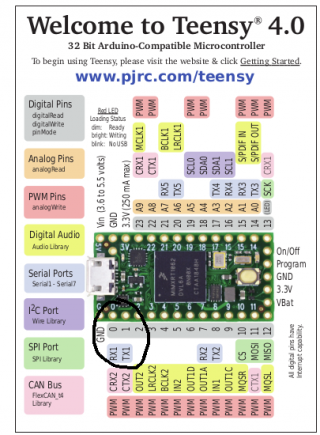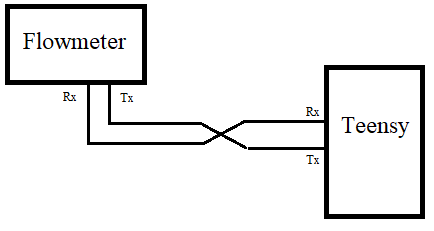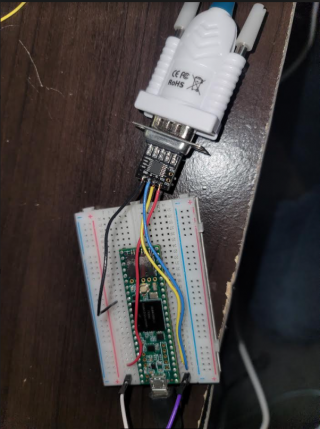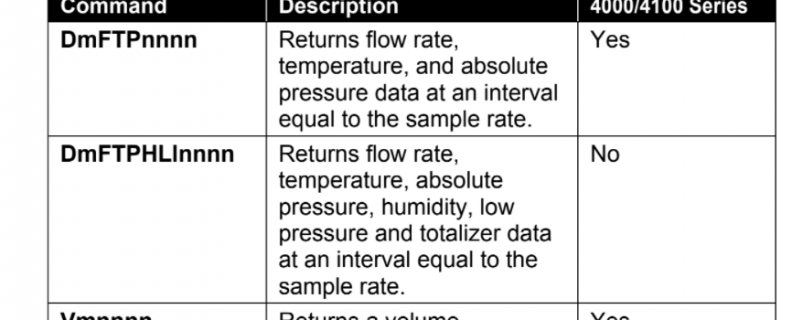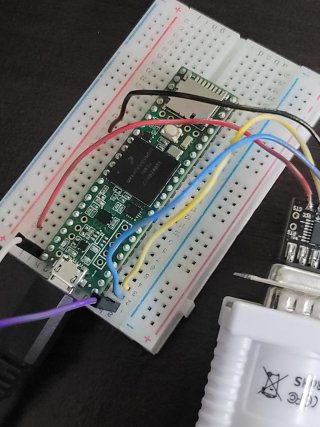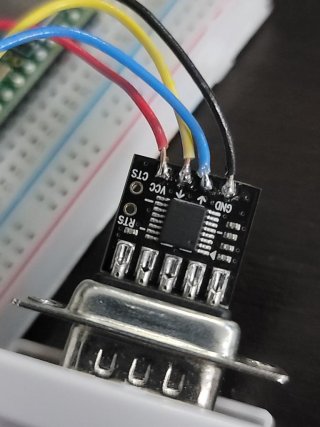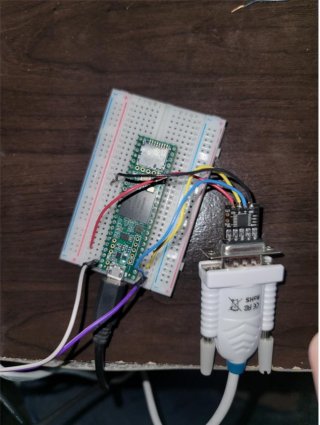ATORTeensyMan
Active member
Hello guys! So, my issue is that I'm attempting to send ascii commands and in return I want to be able to read the outputted response of a sensor. For example, I want to send b'DAFxxxx0005\r\n' then in return the sensor should send 5 readings on one line of Flow in LPM. I have Python code I wrote that does exactly what I want between a pc and the sensor just to show more in depth what I want to achieve between the sensor and teensy. (RX = 0, TX=1)
Code:
import serial
import time
index = 0
total = 0
i = 0
avg = 0
# Serial Connection
time.sleep(.5)
ser = serial.Serial(
port="COM13", baudrate = 115200,
parity=serial.PARITY_NONE, stopbits=serial.STOPBITS_ONE,
bytesize=serial.EIGHTBITS, timeout=1)
# Write ASCII Commands To TSI 5300 Flow Sensor
ser.write(b'?\r\n') # Ask Sensor if it is getting a signal (Returns "OK")
ser.write(b'SUS\r\n') # Set Flow type to SLPM (Returns "OK")
ser.write(b'SG0\r\n') # Set Flow Gas to Air (Returns "OK")
ser.write(b'SSR0005\r\n') # Set Sample Rate to 5ms (Returns "OK")
ser.write(b'LPZ\r\n') # Zero Low Pressure Sensor
# Read serial output to remove all 'OK's from buffer
while (i <= 4):
ser.readline() # Read one line of serial and discard it
i += 1
# Loop infinite flow readings until Flow is <= to 85 LPM
while (avg <= 85):
index = 0
total = 0
ser.write(b'DAFxxxx0005\r\n') # Read 5 sensor Flow Reading
ser.readline() # Read one line of serial data and discard it
byte = ser.readline() # Read one line of serial data and store it
string = byte.decode('utf-8') # Convert from BYTE to STRING
array = string.split(',') # Convert from STRING to STRING ARRAY
# Convert each element of the ARRAY to FLOAT then add them together
for data in array:
index += 1
data = float(data)
total += data
avg = total / index # Find the average Flow in LPM
print(avg)
time.sleep(1)
ser.close()

